We are increasingly aware of a general concern with issues related to the environment and health. Nowadays, many people have avoided the exaggerated consumption of products packaged in plastic, the use of pesticides in agriculture and preferred foods of organic origin.
Of course, eating fresh food is much tastier, healthier and also cheaper! The only drawback is that these foods have no artificial preservatives and end up lasting a lot less. And nobody likes wasting food, much less throwing money away.
With our thoughts in mind, here are some tips for how to preserve food longer. Thus, we help you reduce monthly expenses and avoid waste, which directly contributes to the preservation of the environment, your health and your pocket.
Practical tips: how to preserve food on a daily basis
Some simple actions will help you avoid waste in your home. Check out!
1. Watch out for the big eye!
Raw foods, in nature, or inside the packages last longer than foods that have already undergone preparation. Therefore, whenever preparing food, calculate how much will be consumed and in how long. For example, raw rice lasts years in the package, but cooked rice lasts a few days in the refrigerator.
2. The Freezer is your best friend!
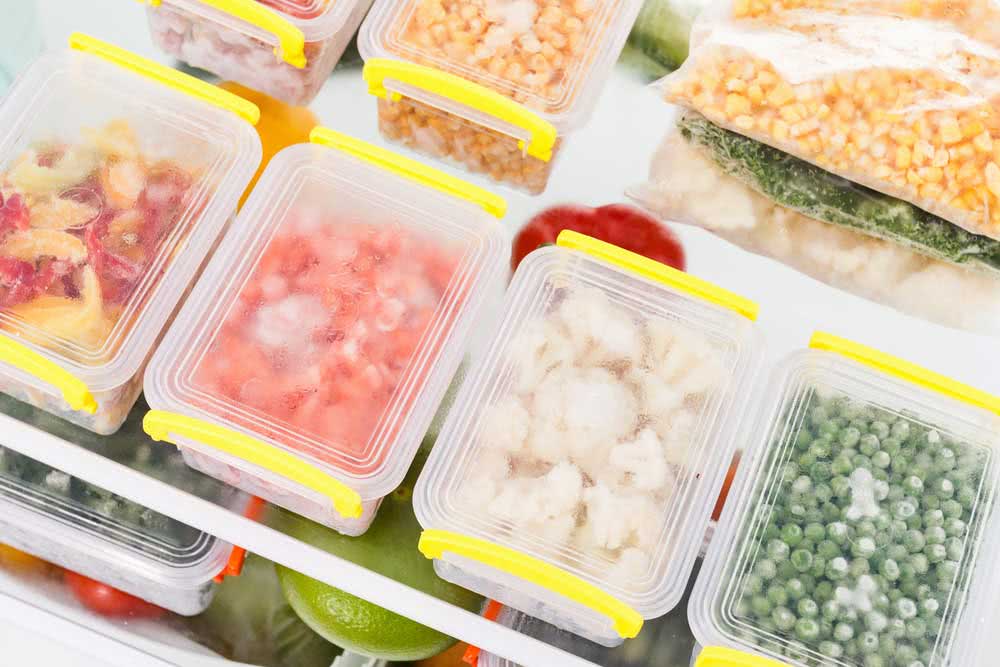
Without a doubt, the best way to how to preserve food it’s the Freezer. There you can store almost everything: fruits (to make delicious juices and smoothies), vegetables and even ready-to-eat meals such as beans and pasta.
But pay attention to the correct way to freeze them! Avoid mixing different foods in the same container. And remember that foods made from dairy products, eggs and meat last less time, even after being frozen.
3. Pay attention to dairy products!
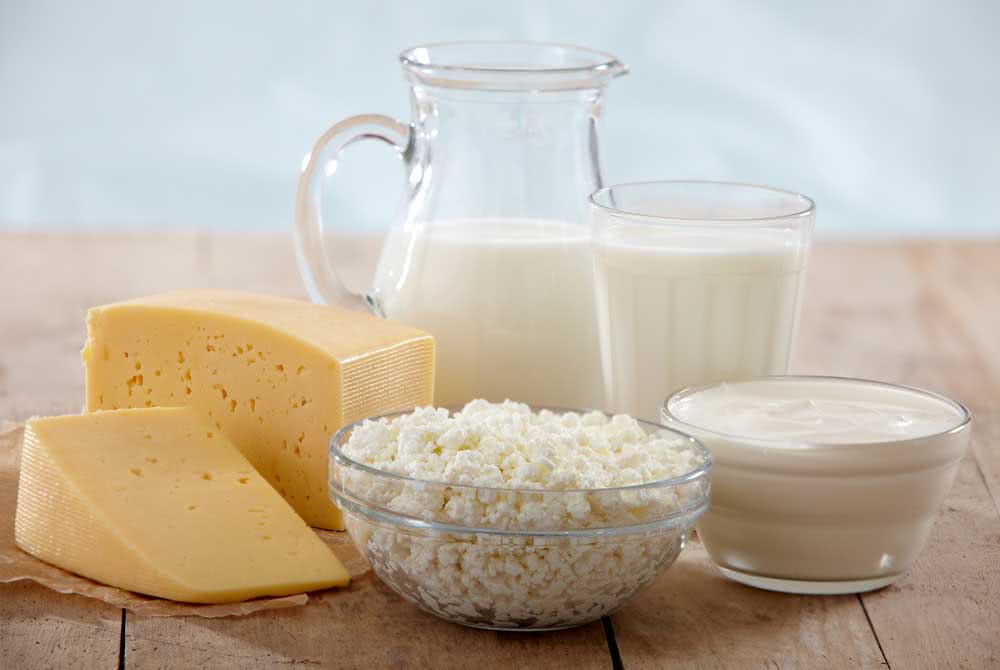
Fresh and bagged milks they need immediate refrigeration after being boiled, as they do not contain preservatives in the composition. They should also be consumed as soon as possible. Therefore, it is ideal to buy this type of milk when it will be consumed quickly. For example, when there are several people for breakfast or when you prepare a recipe that runs a lot of milk.
Carton milks – of animal or vegetable origin – are ideal for people who live alone or consume little. We closed, they can be kept out of the fridge. After opening, it is recommended to put them in the refrigerator immediately and consume them within three days or according to the recommendation on the package.
Butter sealed also withstands a good amount of time outside the refrigerator, but once opened, it should be kept refrigerated and consumed within a few days. Those who don’t like hard butter can try leaving it on the fridge door, as the temperature is less stable.
Fresh cheeses and yogurts should be kept in the refrigerator, preferably on top, intended for the »cold ». There, the temperature is more stable and keeps the products in good condition for long periods.
4. Fruits and vegetables must be fresh and hydrated
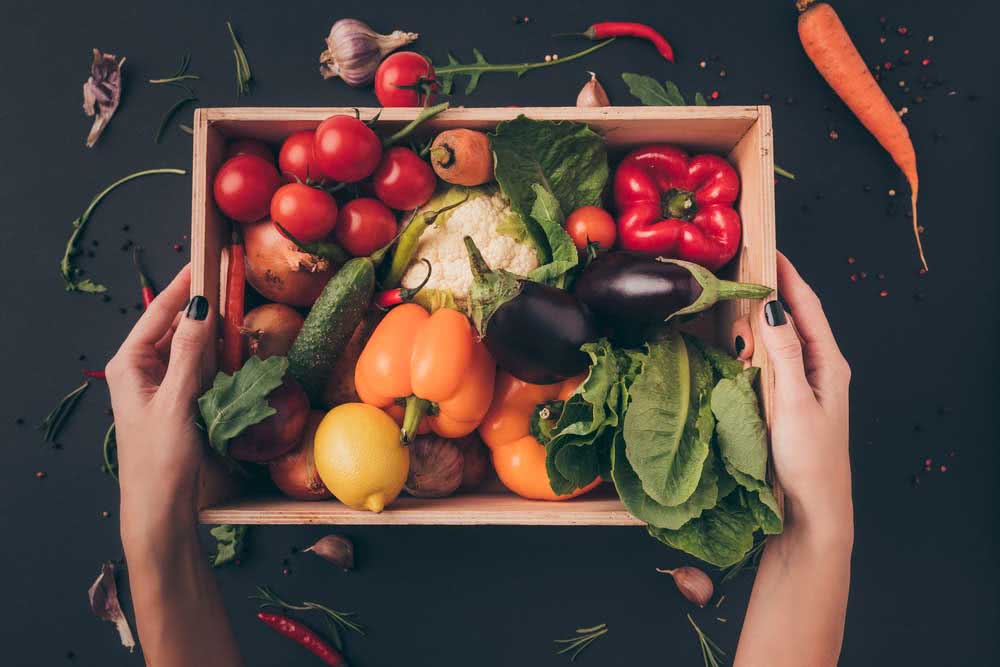
Fruits and vegetables can be kept in the refrigerator drawer. This is an ideal option for those who want to know how to preserve food of that kind. Some fruits, such as apples and lemons, withstand a few days out of the refrigerator well, depending on the climate in your region. If you prefer to accommodate them in the fruit bowl, you can spray water every day to prevent them from dehydrating, keeping them for longer.
Fruits such as banana, mango, papaya, strawberry and passion fruit, when frozen, can turn into ice cream, smoothies and delicious juices. When you realize you won’t be able to consume them in the proper time, keep them chopped in the Freezer in plastic packaging.
5. Leave buns in the bag!
Storing bread in the fridge is not a good idea as it dries out, losing texture and flavor. Therefore, it is best to keep them out of the refrigerator, in closed containers.
French bread can even be frozen or kept in a sealed bag, but the ideal is to use it later for toast or to make bread on the grid. Loaves of loaves can be kept in the closed packaging with the wire.
6. Take care of your grains and cereals!
Products like rice, flaxseed, granola or oats can be attacked by bugs such as weevils and ants. To avoid this, just store them in well-sealed jars, preferably in well-cleaned glasses.
It is also important to keep these foods in a dry place to avoid fungal contamination.
7. What to do with the eggs?
Eggs, contrary to what refrigerator manufacturers think, should be stored in proper containers, on shelves inside the refrigerator, not on the door. Avoid contact with any food that could contaminate the skin, such as meat and other raw products.
8. Know the foods that can last “forever” – or almost
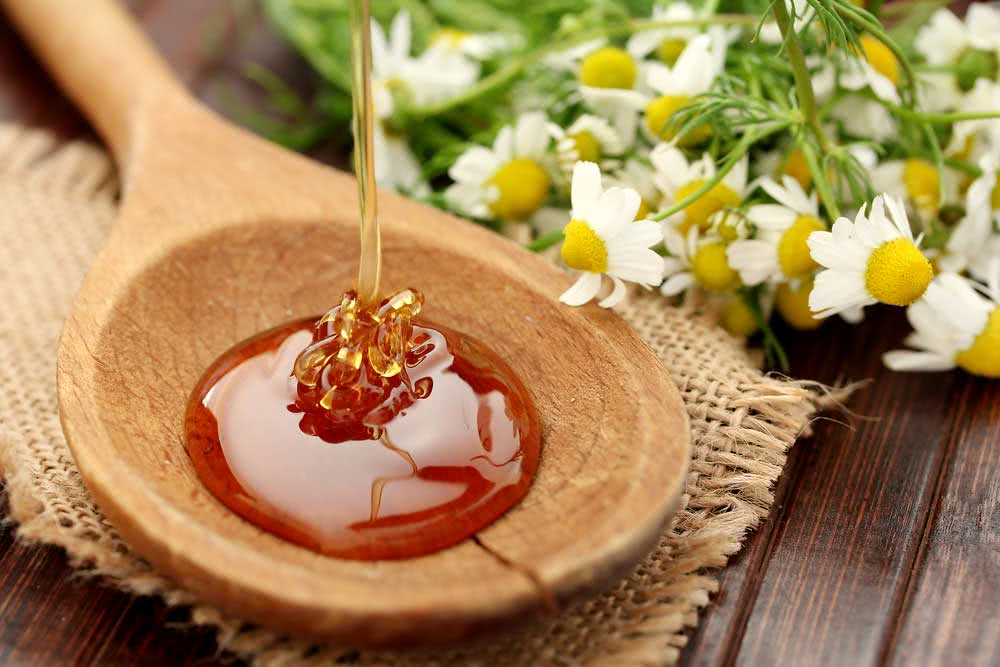
If you are forewarned and, for some reason, prefer to store food for a long period, it is even more important to know how to preserve food. And for that case, prefer canned or dry foods. But if you want to stock up on food “forever” (or nearly so), why not check this list?
-
- Honey: considered the only eternal food, thanks to the magical chemistry manufactured by bees, which manage to create a highly acidic and inhospitable liquid for bacterial growth.
- Salt: since sodium chloride is a mineral taken from nature, its longevity is no surprise. Salt is used to preserve other foods because it removes moisture. Table salt doesn’t last forever, because there is iodine in its formula, but it can last for about 5 years.
- Sugar: you can circumvent the expiration date that retailers are required to stamp on packaging if you keep it away from moisture, in a closed container.
- Powdered milk: since the milk in nature is so perishable, powdered milk is an alternative. If stored in hermetically sealed packaging, away from moisture, it can last a long time.
- Soluble coffee: can be saved in Freezer indefinitely. This is not the case with regular coffee, which is sensitive to light and oxygen and high temperatures.
- Shoyu (soy sauce): depending on the type of additives used by the brand, it can last for years unopened. Once opened, the salty condiment can be kept in the refrigerator indefinitely.
- White rice: can retain its nutrients and flavor for 30 years if stored under vacuum at temperatures below 4°C. Brown rice, however, only lasts for 6 months.
- Maize starch: if stored in a closed container, away from heat and moisture, it can last for many, many years.
- Distilled drinks: the higher the alcohol content of a drink, the longer its longevity, depending on the other ingredients present. Vodka, rum, whiskey, gin, brandy or tequila can last indefinitely.
- white vinegar: if kept in the original sealed bottle, away from light and heat, it can last for years.
- Natural vanilla extract: because it’s made from alcohol, it can stay fresh and tasty for years. If you keep the beans in the sugar container, you get a unique flavored sugar. But remember: artificial vanilla essence doesn’t have the same duration.
And how to conserve food in nature, without a refrigerator?
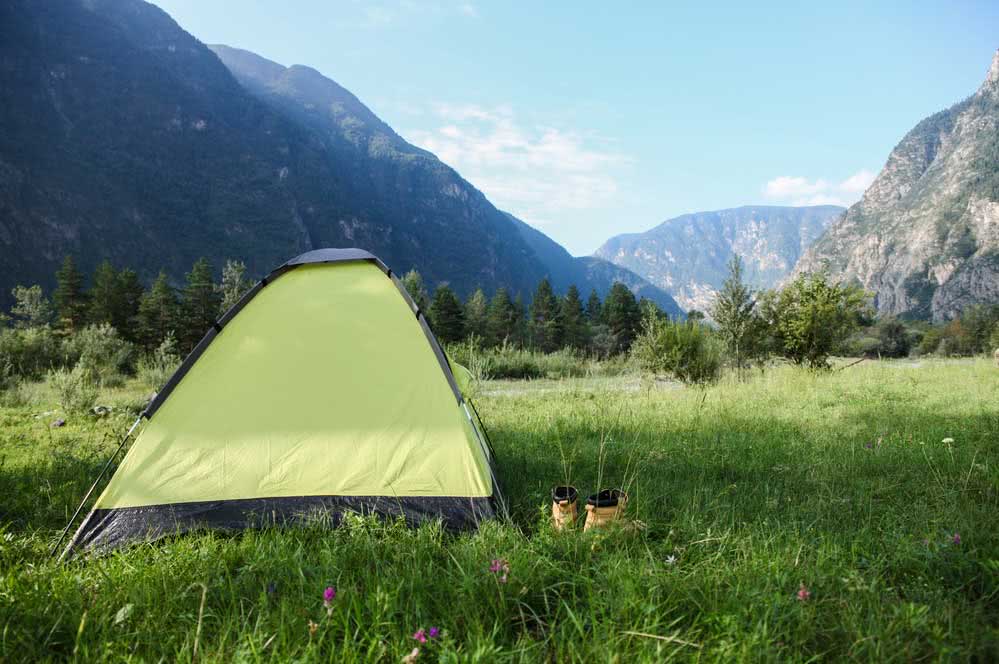
You’ve seen that preserving food at home is easy! But what about when we go camping and can’t count on a refrigerator? Being forewarned at these times is essential, because we cannot run the risk of running out of food when there is no supermarket nearby.
In addition, poisoning from improperly prepared or stored food, especially when medical assistance is not available, can have serious consequences. If you want to enjoy nature without going through a mess, pay attention to the following tips!
Prefer non-perishable foods
The advantage of non-perishable foods is that, if stored correctly, they maintain their quality for longer.
Therefore, in addition to choosing some of the products that last “forever” already mentioned here, prefer dry foods, that is, with little water in their constitution, such as dehydrated fruits and cookies, or preserved, such as cans of tuna, corn, peas or even olives.
If you want to take rice, beans or powdered milk, the cook billboard you need to remember that preparing these foods requires water. Therefore, check the possibility of supply on your trail. Otherwise, you may run out of water for the rest of the tour after stopping for a snack.
handle with care
It may seem obvious, but it is essential to have clean hands when handling food, even to ensure that it can be consumed for longer. The most forewarned always carry alcohol gel with them.
As much as your food is organic, throwing food scraps and husks into the environment can attract visits from rodents. Place in a plastic bag (preferably sealed) and take it with you.
Protection is part of knowing how to preserve food
The “ziploc” models are great for storing food in your backpack. The main advantage is its closure, which prevents leakage.
Type containers Tupperware are even more efficient. As they are also reusable and have good sealing, they also protect food in case of rain or mechanical shocks in the backpack.
These options are much better than the plastic packaging for food provided by the factories, which, in addition to not being reusable, generates more waste and does not provide security for the food inside the backpack, being susceptible to mechanical shocks and leaks.
Is that you? Is there any trick of how to preserve food longer?
It also tends to look for alternatives to how to preserve food on camping and nature walks? Share with us on social media! Let’s all adopt healthier, more economical and environmentally friendly habits.



